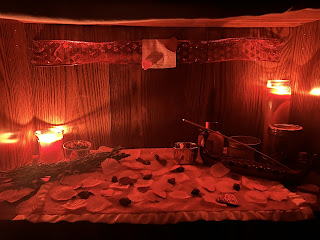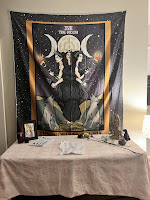a little bit abt Venus

Venus is most commonly known as the Roman counterpart to the Greek Aphrodite. However, in my opinion, the two goddesses are entirely separate, different goddesses, despite sharing some ideas and similarities. I take Latin in school and heard about Her in our mythology lessons, and searched her up eventually. Aphrodite seems to be a fairly popular goddess in the pagan community, and I’m so glad so many people get to work with such a wonderful goddess. However, I do believe that Venus is a bit under-recognized. I tend to be more comfortable with the Roman pantheon because of my heritage and prior knowledge about Ancient Rome, so I was called to Venus more so than Aphrodite. I began working with Her on a Thursday, and the following day was therefore a Friday. I do believe that Fridays have a special significance in terms of love, being Venus’ day of the week and all. (For those who don’t know, the name Friday comes from the name of the Germanic goddess Frigga, who was associated with the ...
